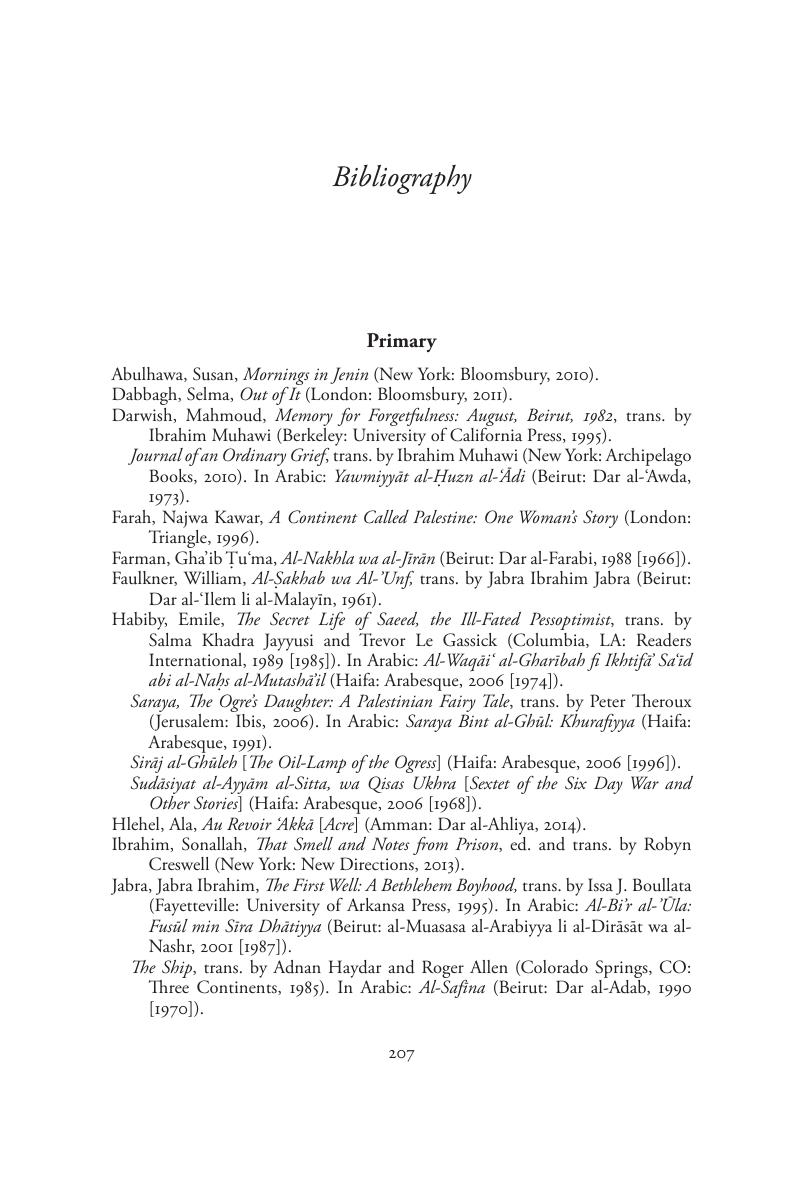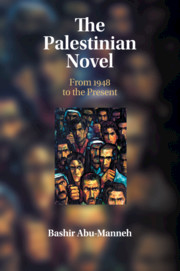Book contents
- The Palestinian Novel
- The Palestinian Novel
- Copyright page
- Dedication
- Dedication
- Contents
- Book part
- Note on transliteration
- Introduction: theory, history and form
- Chapter 1 Jabra Ibrahim Jabra’s self-sacrificers: realism, revolt and renewal
- Chapter 2 Ghassan Kanafani’s revolutionary ethics
- Chapter 3 Emile Habiby: capture and cultural escape inThe Pessoptimist(1974)
- Chapter 4 Sahar Khalifeh: radical questions and revolutionary feminism
- Chapter 5 Tonalities of defeat and Palestinian modernism
- Epilogue:remembrance after defeat –Gate of the Sun(1998)
- Notes
- Bibliography
- Index
- References
Bibliography
Published online by Cambridge University Press: 05 April 2016
- The Palestinian Novel
- The Palestinian Novel
- Copyright page
- Dedication
- Dedication
- Contents
- Book part
- Note on transliteration
- Introduction: theory, history and form
- Chapter 1 Jabra Ibrahim Jabra’s self-sacrificers: realism, revolt and renewal
- Chapter 2 Ghassan Kanafani’s revolutionary ethics
- Chapter 3 Emile Habiby: capture and cultural escape inThe Pessoptimist(1974)
- Chapter 4 Sahar Khalifeh: radical questions and revolutionary feminism
- Chapter 5 Tonalities of defeat and Palestinian modernism
- Epilogue:remembrance after defeat –Gate of the Sun(1998)
- Notes
- Bibliography
- Index
- References
Summary

- Type
- Chapter
- Information
- The Palestinian NovelFrom 1948 to the Present, pp. 207 - 225Publisher: Cambridge University PressPrint publication year: 2016



